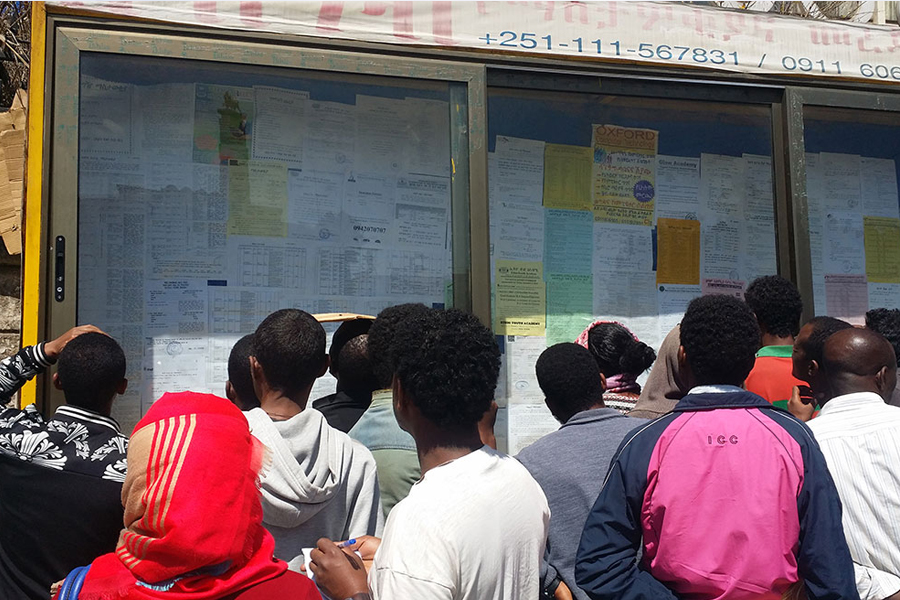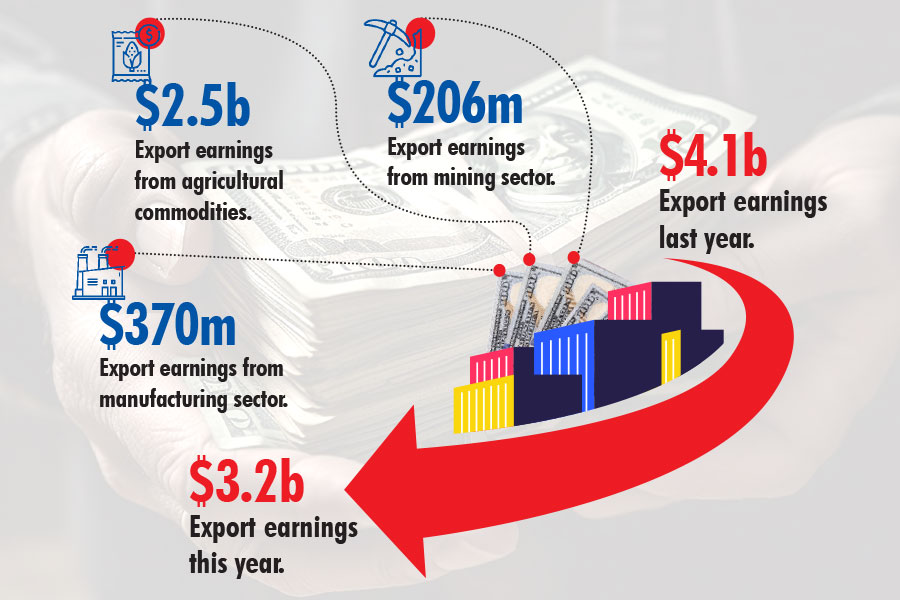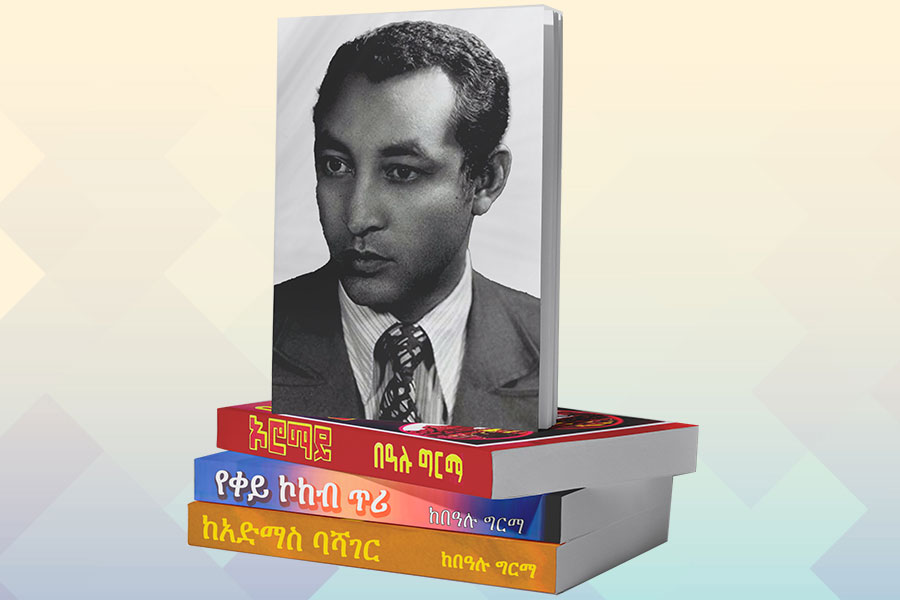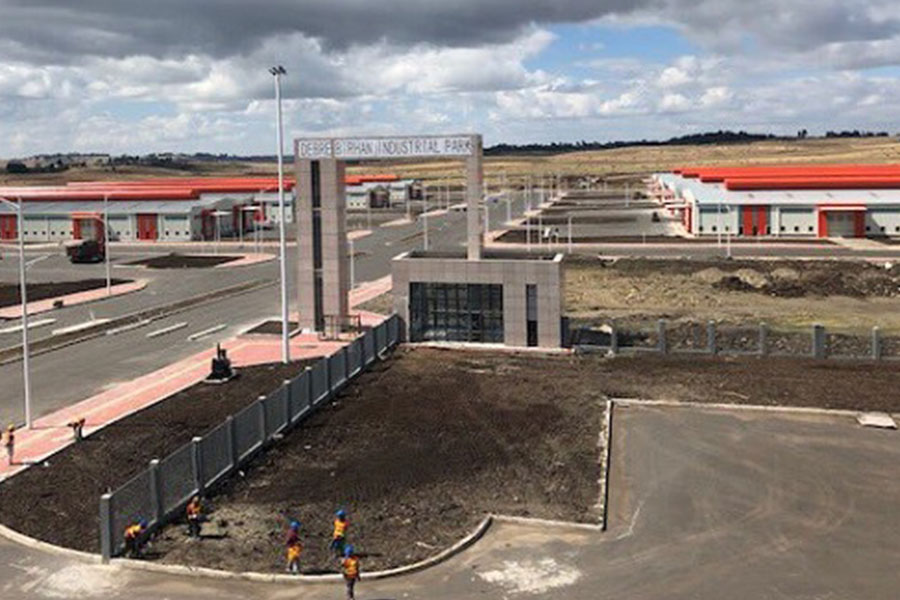
Fortune News | Dec 07,2019
Apr 26 , 2019
By Abdi Zenebe (PhD)
Two nationalisms in Ethiopia, whose tactics and approaches are similar, should strive to become a more constructive force in Ethiopia’s politics, Abdi Zenebe (PhD) (abdizenebe@gmail.com), commentator on political science and international relations.
A brief look at recent Ethiopian history tells us that the process of constructing a healthy nationalism in Ethiopia has been challenging, especially since the 1960s. The primary challenge Ethiopian nationalism has been facing is contestation with neighbouring states after the end of European colonial rule in the Horn of Africa. More recently, however, the rising trend of ethnonationalism demands a thorough analysis of the internal dynamics of Ethiopian nationalism and the reasoning behind the political discussions on the two sides of the aisle.
Politically, the locus of nationalism and its variant, ethnonationalism, is a linear political continuum, where one feeds the other. In turn, the two forces create a dialectical notion of contradictions. The current popular version of Ethiopian nationalism is playing an important and implicit role in feeding the forces of ethnonationalism, which is supposed to be its rival political inclination.
Nationalism is a political force witnessing a revival in the current Ethiopian political spectrum. Some consider it a panacea for the ethnic contestation that has engulfed the country in this period of political transition. Historically, however, its forcefulness is responsible for the emergence of ethnic-based movements. Most, if not all, ethnonationalist groups link this version of Ethiopian nationalism as the primary cause for their respective political struggle.
Hence, the internal contradiction inside a version of Ethiopian nationalism demands further analysis. Most ethnonationalists claims associate the reason for upholding ethnic-based political struggle with the narrative of Ethiopian nationalism they believe ostracises and demeans their political an economic concerns and cultural aspirations.
The “Ethiopian-ness”, often expressed in the form of myths and poems, demands a further elaboration, in more concrete terms and in a manner that is capable of embodying the diverse nature of the state as well as addressing the concerns of ethnic-based political group claims.
The aggressive attacks on ethnonationalist groups will not wear down ethnonationalism. Those who claim to represent or locate themselves on the side of nationalism over ethnonationalism should focus their attention in bringing about a definition of Ethiopia that is broader, deeper and wide enough to address the concerns of ethnonationalist groups.
To do as such, the nationalists need to pay attention to the demands of ethnonationalist groups. This requires working with them, understanding their perspective and building on such knowledge to build a version of nationalism that accommodates a broader political setting. Dismissing claims and attacking ethnonationalist groups will only succeed in pushing them toward the extreme. Broadening the scope and deepening the depth and meaning of Ethiopian nationalism will not only attract the wider audience but address the toxic political atmosphere that is dominated by acrimonious political exchanges.
Since agents on both sides of the spectrum trace common origins and interact in a linear continuum, they have been presenting a political critique and using tactics against Prime Abiy Ahmed’s (PhD) administration that are more or less identical. Both nationalists and ethnonationalist groups employ political tactics that revolve around a singular vision and fear-mongering, which are devoid of reason and deeper understanding of the domestic political context, regional dynamics and global priorities.
Today, most political elites, from either side, rarely fail to mention that Ethiopia has never been as bad as it is today and the conditions never worse. The elites spread fear and mistrust of the momentum of change in Ethiopia.
For the forces of reason, however, Ethiopia has never been better. It is the time where there are no significant fronts or movements fighting guerrilla warfare. It is, in fact, a time when there are no journalists in jail or torture chambers and a time when everyone is allowed to speak baldly. Ethiopia is striving to build lasting peace with its neighbours. Most importantly, it is a time when the central government refuses to solve historically rooted political security problems through the mere use of physical force.
The presence of intermittent security and political problems across different parts of Ethiopia is notable. But a logical assessment of the current government should focus its attention not on how and why the problems occur but rather on what kind of methods are employed to address the problems. Ethiopia is a big state with a long and complicated history - there are problems connected to different issues.
Successive governments applied different methods to address security problems in the country. What is unique about the current administration is its rejection of forceful means of addressing historically rooted political, economic, environmental and social problems.
The strongest weapon at Abiy’s disposal is his ability to refrain from using force. Despite a call for some form of military response by several actors, the premier’s persistence and commitment to alternative conflict resolution mechanisms is as impressive as it is noteworthy.
Previous regimes were faced with similar problems but chose to address them in a way that created more problems. This is all the truer for two of the state of emergencies during Prime Minister Hailmariam Dessalegn’s administration, which only exacerbated the security challenges.
Ethiopians are capable of living in a free and democratic system. The decision to contain the military should not be communicated as a sign of weakness or a source of fear mongering. Political parties and activists should exercise democratic culture that befits such a time of transition.
The political elite should instead provide policy alternatives. If they fail to come up with these, they should reconsider their party’s agenda, goals and aspirations. Better yet, they should do what is noble and step down. But they should not ask the Ethiopian government to meet demands by force unless in circumstances where this is clearly called for.
In a democracy, political parties and media commentators should be at the forefront in defending democratic means of addressing political, social, historical, economic and security problems.
They must shun military means as an option to address domestic problems. What they should focus on is developing better and smarter political, economic, theoretical, structural and systematic responses to the problems the country is facing.
A genuine ethnonationalist group aspires to develop a political program that ensures a peaceful co-existence with its neighbouring regions. Enhancing the socio-economic status of the people requires constant interaction, and ethnonationalist groups should design a political and economic program that ensures lasting progress and stability.
Ethnonationalists and nationalists need to overcome their biases and see what is in front of them today. Both should not see conspiracies and doom and gloom in every corner but digest matters more soberly. They should be able to provide hope, instead of fear. In this way, they are denying the Ethiopian people from enjoying their hard earned freedom.
“The world is what we make of it,” as the saying goes.
PUBLISHED ON
Apr 26,2019 [ VOL
20 , NO
991]


Fortune News | Dec 07,2019

Agenda | Jul 22,2023

Fortune News | Jul 01,2023

Commentaries | Jul 30,2022

Commentaries | Oct 16,2024

View From Arada | Aug 13,2022

Commentaries | Apr 22,2022

Editorial | Sep 27,2020

Viewpoints | Dec 10,2018

Fortune News | Feb 16,2019

My Opinion | 132105 Views | Aug 14,2021

My Opinion | 128507 Views | Aug 21,2021

My Opinion | 126435 Views | Sep 10,2021

My Opinion | 124046 Views | Aug 07,2021





Dec 22 , 2024 . By TIZITA SHEWAFERAW
Charged with transforming colossal state-owned enterprises into modern and competitiv...

Aug 18 , 2024 . By AKSAH ITALO
Although predictable Yonas Zerihun's job in the ride-hailing service is not immune to...

Jul 28 , 2024 . By TIZITA SHEWAFERAW
Unhabitual, perhaps too many, Samuel Gebreyohannes, 38, used to occasionally enjoy a couple of beers at breakfast. However, he recently swit...

Jul 13 , 2024 . By AKSAH ITALO
Investors who rely on tractors, trucks, and field vehicles for commuting, transporting commodities, and f...

Jul 12 , 2025
Political leaders and their policy advisors often promise great leaps forward, yet th...

Jul 5 , 2025
Six years ago, Ethiopia was the darling of international liberal commentators. A year...

Jun 28 , 2025
Meseret Damtie, the assertive auditor general, has never been shy about naming names...

Jun 21 , 2025
A well-worn adage says, “Budget is not destiny, but it is direction.” Examining t...

Jul 13 , 2025 . By YITBAREK GETACHEW
The Addis Abeba City Revenue Bureau has introduced a new directive set to reshape how...

Jul 13 , 2025 . By BEZAWIT HULUAGER
Addis Abeba has approved a record 350 billion Br budget for the 2025/26 fiscal year,...

Jul 13 , 2025 . By RUTH BERHANU
The Addis Abeba Revenue Bureau has scrapped a value-added tax (VAT) on unprocessed ve...

Jul 13 , 2025 . By NAHOM AYELE
Federal lawmakers have finally brought closure to a protracted and contentious tax de...